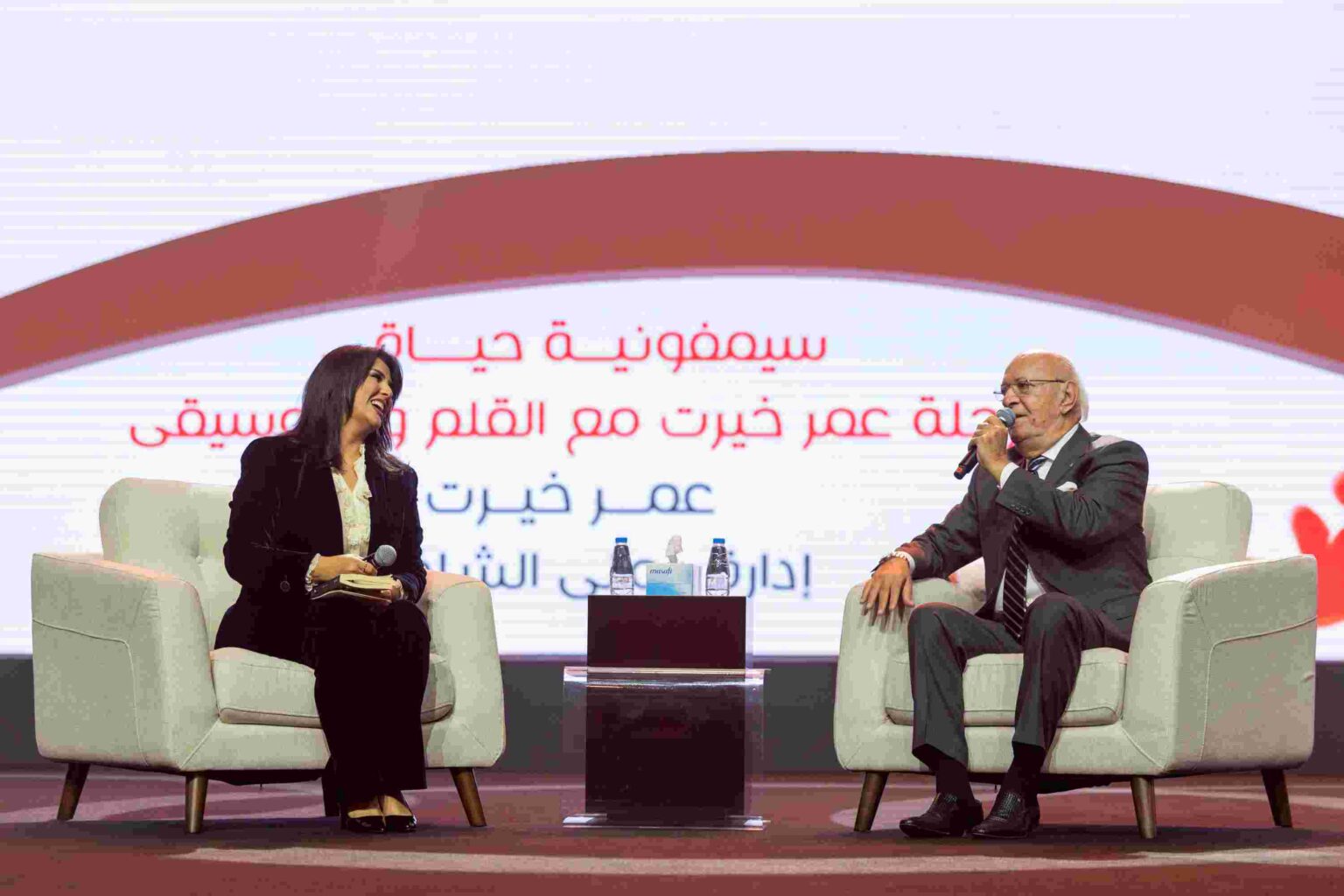Renowned Egyptian composer shares personal & artistic journey at Sharjah International Book Fair 2024
Celebrated Egyptian composer Omar Khairat made a landmark appearance at the 43rd Sharjah International Book Fair (SIBF 2024) on Friday evening, where he shared the inspiring story of his illustrious career and musical journey. In a vibrant session, Khairat reflected on the roots of his lifelong passion, discussing his youth, key influences, and insights from his autobiography, The Rebel: The Life of Omar Khairat. The audience was treated to an intimate look at the creative vision behind his iconic work, as Khairat shared the inspirations that shaped his artistry.
Moderated by Egyptian media personality Mona El Shazly, the session marked Khairat’s debut at the Sharjah International Book Fair. Expressing his enthusiasm, he stated, “I’m thrilled to be part of this remarkable event and pleased to share my music and emotions with this audience.”
A musical journey rooted in family, heritage, and evolution
Khairat reflected on his formative years in a culturally rich household that deeply valued the arts, particularly music, where his passion first took root. He recounted the profound influence of his uncle, the renowned composer and architect Abu Bakr Khairat, founder and first dean of the Academy of Arts and Conservatoire. “As a child, I would watch Abu Bakr’s performances at the opera, dreaming of following in his footsteps one day. In the end, I did—though in my own style,” Khairat shared.
His musical journey began with the drums in the 1960s, an instrument he saw as embodying the spirit of freedom and rebellion of that era. Following the 1967 war, drumming became a personal outlet for expressing the collective anguish felt by himself and his community. Years later, he transitioned to the piano, which he calls “the mother of all instruments,” marking a new chapter in his musical expression and evolving artistry.
Bringing Arab music to the world
During the session, Khairat described his unique approach to blending Arabic melodies with Western forms. “As Arabs, we naturally embrace singing, so the concept of pure instrumental music was quite new,” he explained. He recounted how his first composition, The Arrest of Fatma, initially met with producer hesitation, but after a limited cassette release, it became a resounding success. “My aim was to create Arabic music that harmonises with Western forms while preserving its Eastern melodic essence to gain global appeal,” Khairat added.
Art as a cultural message
In closing, Khairat emphasised art’s role as a noble cultural message. Recalling his frustration over a 2010 increase in ticket prices at the Egyptian Opera House, he commented, “Art carries a noble message, and I was disappointed by the decision to raise ticket prices. It’s the government’s responsibility to support and promote art, ensuring it’s accessible to all.”

